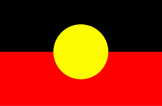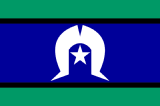Foster carers have an important role in planning for the child or young person in their care. They should be included, and participate in, decision-making processes in such a way that their opinions, insights and experiences with the child or young person are properly considered and incorporated in the planning process.
Every child in out of home care should have a Care Team and every foster carer should actively participate in all the Care Team processes that happen in relation to a child in their care. The Victorian Handbook for foster carers states that Care Teams aim to strengthen communication between the important people in the child or young person’s life, whereby members of the Care Team work together to achieve the best outcomes for the child or young person.
Strong carers, stronger children is underpinned by six goals that articulate the Victorian Government's commitment to improve the experience of carers and to support them to provide nurturing and therapeutic care to Victoria’s most vulnerable children. This commitment includes Care Teams.
The Victorian Foster Carer Charter also states that foster carers should be included to ensure they are involved in planning and their views are sought within the Care Team.
Within the DFFH guidelines it states that a Care Team focuses on the day-to-day care issues, and it is the carer’s agency or ACCO providing the placement, who is responsible for establishing and leading the Care Team.
A Care Team is defined as the group of people who jointly provide the day-to-day care for a child or young person while they reside in out of home care. The members of the Care Team are jointly responsible for determining and doing all the things that parents ordinarily do for their children. *This definition is specific to out of home care - it is recognised that Care Teams are often defined and constituted somewhat differently in other contexts.
Carers bring first-hand knowledge, expertise, and insight to the needs of children and young people in their care. This strategy supports carers to work collaboratively with social workers and other professionals to make decisions in the child’s best interests. It is essential that all care team members respect a carer’s role as fundamental in the recovery and support of children in care, to recognise the importance of their role as experts on the child or young person they are supporting, and to treat them as equals. Department of Families Fairness and Housing Victoria | Strong carers, stronger children (dffh.vic.gov.au)
Care Teams for children or young people in foster care should always include:
Their foster carer(s).
Their agency or ACCO case worker (who is responsible for leading the Care Team).
Their Child Protection Practitioner unless the agency has been contracted to take on case management responsibility for a child or young person in long term care.
Their parents (unless there is a very good reason not to include them).
Their therapist if one is involved with the child or young person.
Other people may become members of a Care Team depending on the specific issues and needs of the child or young person, remembering that it should only include the people who are determining and doing things that a parent would generally do and that it should be kept as small as possible to be effective.
Other adults who play a significant role in caring for the child or young person such as grandparents, extended family members, Aboriginal Elders, or respite carer should also be included. It is important that the Care Team for an Aboriginal child includes at least one person from their community wherever possible. Aboriginal Cultural Support Planning - VACCA
Care Teams (like good parents) are expected to ensure that the wishes and views of children and young people about their ongoing care are always ascertained and fully considered. Foster carers should get to know the child or young person they are caring for well enough to understand how to engage them most effectively and age-appropriately in Care Team processes at any time. Care teams need to consult children aged 15–18 years regarding their personal aspirations and needs as they mature and transition towards adulthood according to the Home-Based Care Requirements.
The Care Team must also ensure that children and young people are given progressively greater responsibilities for making more of their own decisions, as they become older, to help them prepare for a successful transition to adulthood and for leaving care. Where appropriate, the child or young person should attend Care Team discussions if that is the best way of ensuring that their views and wishes are ascertained and considered by the whole Care Team. For a younger child you may also use the My Care Team proforma by Shayne Hood at Wounds And Wisdom that helps you explore a child’s wishes if they are unable to attend the Care Team meeting. Professional resources — Wounds and Wisdom
Care Teams are led by the agency and these processes specifically focus on ensuring that the child or young person’s day-to- day care needs are met while they are in out of home care. Care Teams do not need to have formal meetings – but they must have regular discussions and conversations.
Care Team members need to have enough face-to-face contact with each other to enable all members to work together effectively, especially at the beginning of the placement. However some discussions and conversations can be quite effectively carried out over the telephone or via email, especially when Care Team members have developed good working relationships with each other.
Most agencies now have a Care Team proforma but also use the Looking after Children records to guide the meeting. They should be seen as living documents and not simply as forms to be filled in—it is good practice for carers to receive clearly written outcomes of discussions.
All Care Team members should have a copy of the current care plan so everyone is clear about one another’s responsibilities. A copy of the care plan should always be given to Child Protection so it can be attached to the child’s case plan sub-section in CRIS.
Members of the Care Team should come together as regularly as required by the circumstances of the child and family. This may be as frequently as fortnightly in intensive situations where urgent action is required within short timelines. At a minimum, the Care Team should meet every three months to exchange information, review progress and coordinate actions towards the goals and intended outcomes for the child as identified in the case plan but it is recommended that they be conducted monthly.
Foster carers should always participate in Care Team discussions or meetings unless there are very good reasons to not attend a face-to-face meeting (e.g., Ill health or work commitments of the carer). In situations where a carer does not attend, it is very important to ensure that agency workers have all relevant information you can provide regarding the child or young person. This enables the Care Team to make well informed, appropriate decisions in relation to the child or young person’s needs and future plans. If unable to attend, it is suggested you ask for a copy of the minutes from your agency worker.
The Care Team as a whole is responsible for:
Making the arrangements for the child’s or young person’s day-to-day care.
Managing the contact and access arrangements for the child with their parents, siblings, and extended family.
Obtaining, utilising, and updating the essential information about the child or young person that is needed by all Care Team members to enable them to provide good care of the child using the LAC Essential Information Record.
Assessing and responding to the changing needs of the child or young person in their care and monitoring outcomes using the LAC Assessment and Progress Record.
Developing, implementing, and reviewing the child’s care and placement plan using the LAC Care and Placement Plan and the LAC Review of the Care and Placement Plan.
Implementing cultural support plans for Aboriginal children or young people and ensuring positive cultural connections for children and young people from other CALD groups.
Managing day-to-day liaison with pre-schools or schools and participation in student support group meetings for school aged children or young people - including deciding which member(s) of the Care Team will be directly involved in developing the Individual Education Plan with the school.
Obtaining and compiling the information about the child or young person needed by the GP, mental health worker and any other specialists involved in undertaking an entry to care assessment for the child.
Arranging initial health checks within four weeks of entry to care and essential follow up assessments or health reviews and then implementing any recommendations arising from these health assessments.
Ensuring the child or young person maintains positive connections and relationships with their family, friends, school, community, and culture and/or supporting the child to reconnect and rebuild their network of relationships.
Ensuring the child or young person experiences the “ordinary plenty” of a “good life” by developing their interests and participating in a range of community activities.
Planning and preparing for the child or young person to return home or to move to another placement if required.
Planning and preparing the young person to leave care and make a successful transition to adulthood if not returning home.


